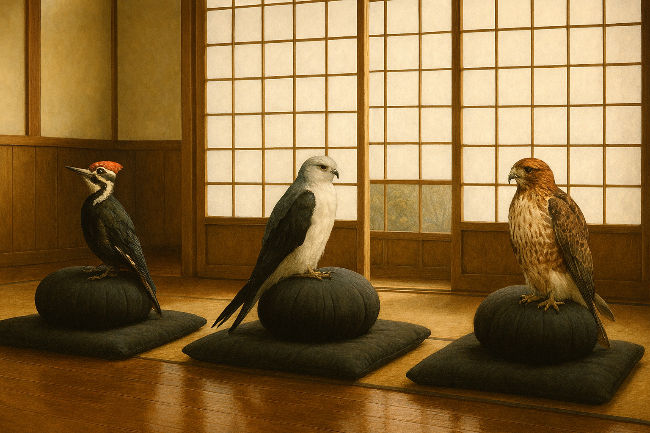Bird Conservation: A Total Eclipse of the Heart
- LoraKim Joyner
- Apr 11, 2024
- 3 min read
Updated: May 17, 2024

Total eclipse as seen from Missouri in the USA on April 8, 2024
Driving through Missouri this week, my spouse and I were in search of a restful place to watch the total eclipse. We ended up on a rural hilltop cemetery and church with a handful of people. Watching the darkening of the day together, most of us started as strangers and ended as much more than a transitory gathering, but something stronger -- bonded in awe and love of this life and earth.

Cemetery view of eclipse April 8, 2024
I needed this unfathomable celestial event because the shadows of parrot conservation seems to be growing longer and deeper these past weeks. I recently wrote of our nests in Honduras that were poached and the confiscation of 240 eggs in Panama. But it is not just Central America that is being rocked by the international, illegal parrot trade, but South America as well.
Suriname has especially been in the news recently. In July 2023, 29 Lear’s macaws were confiscated in Paramaribo. These are endangered parrots from Brazil, and they are not supposed to be trapped or traded in or out of Brazil or Suriname. In December, 330 birds left Suriname and arrived in Sri Lanka, prompting a coalition of organizations to protest this illegal movement of birds. In February, more animals, including Lear’s macaws, were confiscated in the African country of Togo, having originated in Suriname. Also in February, Ukrainian women were detained for trying to smuggle Lear’s macaw eggs into Suriname from Brazil.
One journalist wrote, "Suriname and Guyana, apparently, are the main routes for these animals to leave South America. Europe and Asia are the main destinations. Togo was probably just on the transit route. “
We have projects in both Suriname and Guyana and we experience the constant loss and harm caused by the international trade with a range of emotions, as expressed in the words from Bonnie Tyler in the song, “Total Eclipse of the Heart,”
Every now and then, I get a little bit angry
And I know I've got to get out and cry
Every now and then, I get a little bit tired
Of listening to the sound of my tears
Every now and then, I get a little bit restless
And I dream of something wild
My wild dream is that our global cultures no longer accept the domination of any being under the guise of care. The world and its beings, including humans, have seen enough of this lack of freedom. I truly believe there are much better ways to organize human societies, though I alone cannot discern the how and why for any other peoples or places. It will take a group of us to form something stronger bonded in awe and love of this life and earth.
This is what we are trying to do at One Earth Conservation and with our Parrot Conservation Corps. As we did on the hilltop under the eclipse, where the horizon’s light looked like the sun setting in a circle surrounding us, let us keep turning around in amazement. May we be vigilant to see the beauty and tragedy ever with us, in sky and in feather, and perhaps we might just one day turn this whole mess around.
And we need each other now
And we need each other more than ever
(Turn around)
We'll only be making it right
'Cause we'll never be wrong
Together, we can take it to the end of the line
(Turn around)
(paraphrased from "Total Eclipse of the Heart")

Counting parrots in our project area in January 2024 - Kalebaskreek Village, Suriname
Concretely, what can we do now? Changing our relationship to others and being in solidarity with all of life is important work for transformative conservation. It is no small thing to step out of our routines and invite wonder into our days. Finding ways to experience the beauty around us and taking moments to express gratitude is a conservation activity. One Earth Conservation leads Birding for Life Walks and is in the process of publishing a book, "Birding for Life," that guides people in how to connect and conserve.
We invite you also to NOT buy parrots, adopt instead, and donate time and resources where you can. We'd love your support for our project with indigenous villages in Suriname. We are working with partners there to see what they need to help Suriname reduce the harm caused by their wildlife trade. You can also read and distribute this guide that addresses how to reduce the harm of the trade in Suriname.

This is the new logo for Kalebaskreek featuring a blue-and-yellow macaw
Please pass on information and news about the wildlife trade and get involved with campaigns that expressly aim to diminish the harm caused by keeping birds in cages (more information is available at the website for the International Alliance for the Protection of Parrots).




Comments